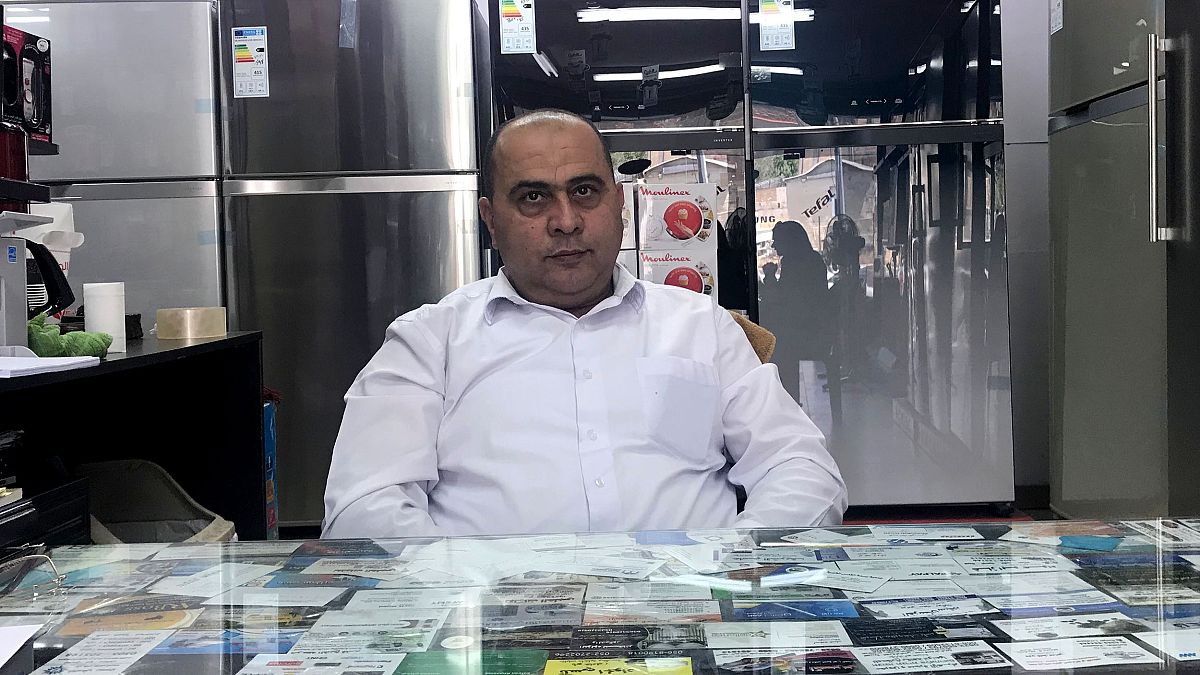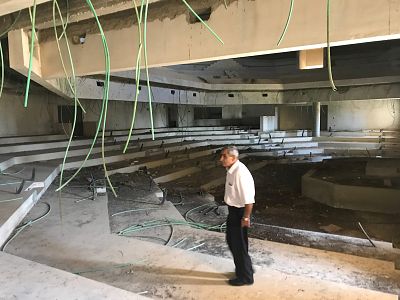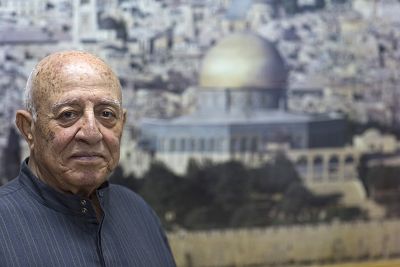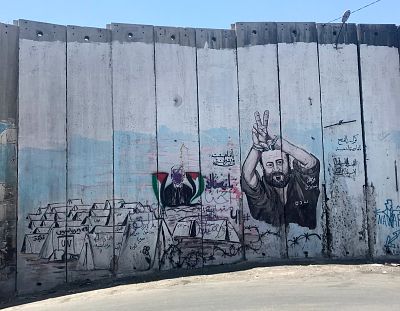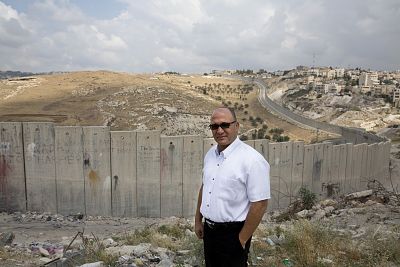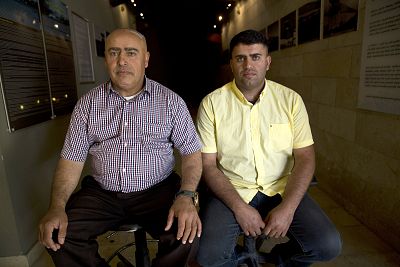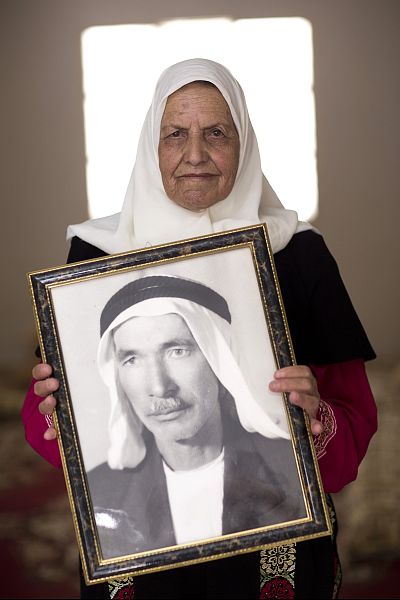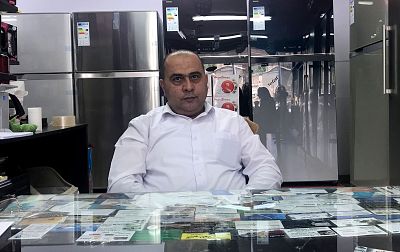No one interviewed in the West Bank town of Abu Dis welcomed the idea of it becoming a Palestinian capital.
ABU DIS, West Bank — Pigeons inhabit the main hall of what should have been a Palestinian parliament.
Their dried excrement cakes semicircular platforms where politicians would have sat and debated.
Green and red electrical tubes dangle from the ceilings like tentacles.
Tough weeds choke the driveway leading to the building's entrance and mounds of ruined desk chairs sit in piles in the underground parking lot. Nearby, a cat bursts from the bowels of a mouldering armchair.
This shell, in the Jerusalem suburb of Abu Dis, was built after the 1993 Oslo Peace Accords had raised hopes that Palestinians would soon have an independent state alongside Israel.
Then in 1995, Israeli Prime Minister Yitzhak Rabin, who had pursued negotiations with the Palestinians, was assassinated by a Jewish extremist opposed to the plan. Subsequent talks floundered, violence flared and work on the building ground to a halt.
Today, the hulking monument to dashed dreams has gained renewed significance amid rumors that Abu Dis will be the Palestinian capital envisioned in President Donald Trump's "deal of the century" aimed at ending the Israeli-Palestinian conflict.
The president's son-in-law and top adviser, Jared Kushner, and Middle East envoy Jason Greenblatt are scheduled to visit several countries in the region next week, further raising speculation that an agreement is imminent.
The New York Times has reported that Saudi Crown Prince Mohammed bin Salman has presented the idea of Abu Dis as a capital to Palestinian leadership, who rejected it out of hand.
This would mean giving up on a capital in Jerusalem, something few Palestinians admit they would even consider. This has long been one of the main sticking points between Israel and the Palestinians.
One of the driving forces behind the old legislative building laughed off the idea that Abu Dis could be a Palestinian capital, and the unfinished parliament its seat of government.
"Do you have money to buy it?" joked Ahmed Qurei, the chief Palestinian negotiator of the Oslo Accords and an Abu Dis native.
Qurei, a former Palestinian prime minister, grew serious.
"A building is not a capital," he said, while sitting under a picture of the Dome of the Rock, the Muslim shrine on Jerusalem's Temple Mount that is a potent symbol of national identity.
The whole point of placing it in Abu Dis was that it was part of Jerusalem, not that it replaced the city, he said.
Qurei then recalled that the walk to school in Jerusalem when he was a child took less than an hour. But nowadays Abu Dis is a largely walled-off island.
Israel's security barrier slices across the town of some 13,000, and it, along with crossing closures and a pass system make it hard or impossible for residents to visit Jerusalem.
The massive settlement of Ma'ale Adumim, home to some 40,000 Israelis, looms next door. Along with hundreds of similar communities housing around 400,000 in the West Bank and 200,000 in eastern Jerusalem, it serves as reminder that a contiguous Palestinian state still looks like a pipe dream.
The walls within Abu Dis — which was conquered by Israel in the 1967 war, along with eastern Jerusalem, Gaza and the rest of the West Bank — speak of past resistance, not future peace.
Spray-painted portraits and tributes to political prisoners line the one traffic-clogged road leading in and out of town. On the separation barrier, Marwan Barghouti, in jail serving five life sentences for murdering Israelis, flashes a victory symbol with his hands raised in handcuffs.
On a hill up the road from Barghouti's portrait, Abu Dis native Anwar Bader pointed to a cluster of olive trees just on the other side of the wall. It was his family's plot, which they can no longer reach.
"My aunt cries every time we pass this spot," said Bader, 41, a former prisoner and current professor at nearby Al-Quds University. "She was the one who farmed it. She didn't have any children and considered this land like her children. She lived for those olive trees."
He reflected on reports that Arab countries were pushing Palestinians to accept the plan with Abu Dis as the capital.
"No doubt there is a lot of pressure on our leaders in Ramallah," Bader said, referring to the de facto administrative capital of the Palestinian Authority. "But Palestinian leaders won't accept it."
Israel has long had strained or nonexistent relations with Arab countries, leading to decades of painful regional isolation. A deal to resolve the conflict with the Palestinians is widely expected to pave the way for normalizing relations with much of the Arab world.
In January, Palestinian Authority leader Mahmoud Abbas essentially confirmed reports that he was being leaned on to accept Abu Dis as a capital.
But none of the fifteen or so people NBC News spoke to in this dusty town of 13,000 welcomed the idea. On the contrary, growing disillusionment has led to despair and a hardening of attitudes among people who had sought reconciliation with Israel for 25 years.
The nail in the coffin of any potential peace deal, according to many Palestinians, was Trump's decision in December to move theAmerican Embassy to Jerusalem and officially recognize the city as the capital of Israel.
This move convinced Fahad Abu El-Haj, 58, the director of the Abu Jihad Museum for the Prisoners Movement Affairs at Al-Quds University, to give up on negotiating with the Israelis altogether.
"Arafat made us believe in Oslo," he said, referring to the peace process whereby the Palestinian Liberation Organization led by Yasser Arafat renounced the use of terrorism and other acts of violence, and recognized "the right of the State of Israel to exist in peace and security."
Former President Bill Clinton invested considerable time and effort in trying to craft a lasting peace agreement between Israel and the Palestinians. The failure of these efforts and the outbreak of what is known as the second Palestinian intifada in 2000 made Israelis who had supported the Oslo process wonder whether they could trust their Palestinian counterparts.
"After 25 years we have found we have nothing. The Americans, we find, are supporting only the Israelis," El-Haj said.
"So I cannot accept negotiations anymore. I want all of Palestine now, from river to sea," he said, referring to the land between the Jordan River bordering the West Bank to the east and the Mediterranean Sea to the west.
He reflected that Israeli officials, and American, who have heaped abuse on Abbas were being shortsighted.
"Abu Mazen was the most flexible of all Palestinians," he said, referring to Arafat's successor by his nom de guerre. "We will never find anyone like him to lead the Palestinian people."
While it may not be a surprise that a longtime activist who spent years in Israeli prisons was taking a hardline approach, others in Abu Dis echoed El-Haj's sentiments: Decades of on-again, off-again negotiations with Israelis have produced a separation wall, multiplying settlements and the loss of Jerusalem.
Plus, there is no sign that the millions of Palestinians driven from the country when Israel was founded will ever be given the right of return — something that has long been demanded by Palestinians.
Vivien Abu Shusha, 23, is also definitive.
"I will not accept that Abu Dis is our capital," Shusha, a midwifery student at Al-Quds University, said. "I was born and raised to believe that Jerusalem is our capital. Why should I accept it?"
And what if it is imposed on the Palestinians by the Israeli, American and Arab leaders, as has been suggested?
"The only plan I would accept is a Palestinian state with Jerusalem as the capital," she said.
Anwar Bader's 80-year-old aunt, Hamamh El Jafal, whose olive grove lies outside the walls of the town, is certain of whom the land belongs to.
"This land was my grandfather's and then my father's," she said, describing how she tended the grove and made olive oil.
Her father, Ahmed Salem Jafal, recognized her talent for working the land when she was young, and said he wished she had been born a boy — something El Jafal took as a great compliment.
El Jafal described what happened when she learned that the barrier was being built in 2003.
"When I heard that they were there, building a wall, I started shouting," El Jafal said.
She ran up to a bulldozer, and cried: "'What are you doing, this is my land, these are my olives."
"After they saw me screaming, they said, 'We will build you a door in the wall so you can come out to the olive trees,' but they lied," El Jafal added.
She has not touched the olive trees since.
The conviction that Israel, with America's help, has used peace negotiations as cover to take land that rightfully belongs to the Palestinians is pervasive in Abu Dis. And it is breeding despair, as well as intense anger.
"I agreed with Oslo at the time. I disagreed with some parts but I wanted peace," said Hikmat Suleiman, who sells refrigerators, washing machines and other appliances from a shop some 20 yards from the separation barrier. "But now there is no hope for peace."
His fury is largely directed at the U.S., which he said supports Israel unthinkingly and is out to harm Muslims worldwide.
"They are killers," he said, referring to Americans. "If a Jewish pet is killed, they would hold a memorial. But if a Muslim family dies — do they say anything?"
His business has suffered since the wall was erected, and that has only made him angrier since Trump came to power.
"I promise, I will not kill Americans or Israelis," he said, "but I will have this hatred for them in my heart forever."
